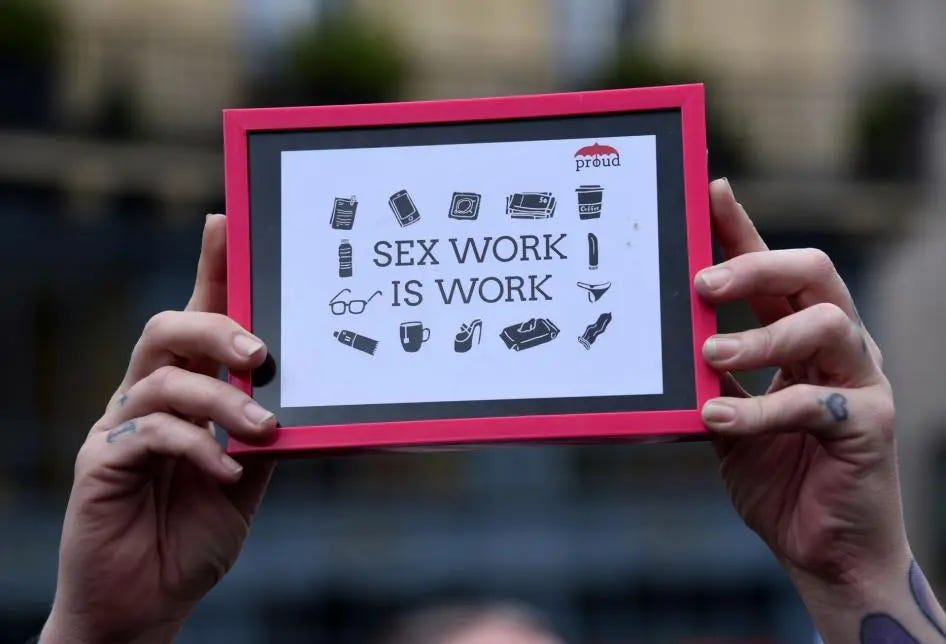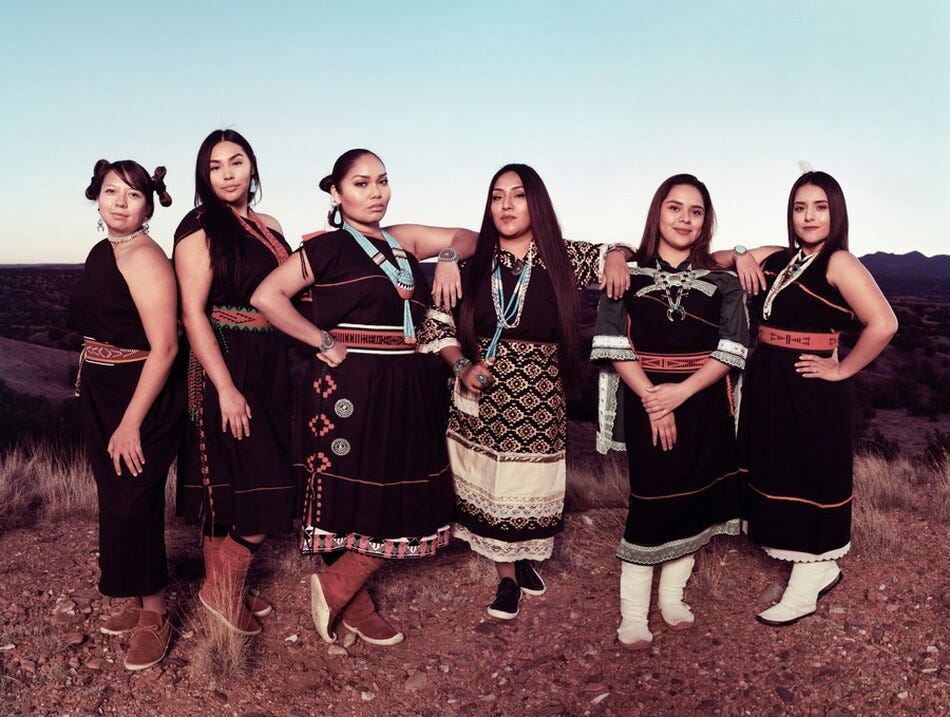What does true environmental justice require?
And some of the women who are coming up with solutions.
In today’s letter: South Africa’s national reckoning with gender-based violence, updates since the UK Supreme Court’s recent ruling on the term “woman”, Sweden’s approach to sex workers, the Gates Foundation in Singapore, a feminist coffee company in Uganda, friendship is expensive, and much more.
In the late 1970s, a suburban neighborhood in Niagara Falls became the epicenter of a national environmental crisis. Love Canal, an otherwise unremarkable community, was contaminated by 21,000 tons of toxic chemicals illegally dumped by Hooker Chemical, which leached into homes, yards, and a nearby school playground. The story of Love Canal is one of environmental disaster, but it also serves as a striking illustration of the intersection between race, class, and environmental justice, revealing the fault lines in which the fight for clean air, water, and land is often waged.
Lois Gibbs became the face of the Love Canal crisis. A determined housewife and mother, she founded the Love Canal Homeowners Association and led the charge for government action, eventually helping secure a federal emergency declaration and the establishment of the Superfund program. Yet, while Gibbs garnered national attention, just across the street, in Griffon Manor—a predominantly Black, low-income neighborhood—another group of mothers was fighting the same fight, their voices largely absent from the media narrative.
Women like Agnes Jones, Vera Starks, Elene Thornton, and Sarah Herbert, who lived in public housing, were organizing just as tirelessly, collecting testimonies of miscarriages, cancers, and skin diseases caused by the same toxic waste. But their concerns, despite being equally urgent, were overshadowed by the more "palatable" story of white homeowners.
The omission of Griffon Manor’s mothers from the Love Canal narrative speaks volumes about the role race and class play in environmental justice. While Lois Gibbs received widespread media coverage and national recognition, the mothers in Griffon Manor were relegated to the margins. Their status as renters in public housing compounded the systemic neglect they faced, as both the media and policymakers ignored their plight.
This erasure highlights a persistent flaw in the environmental movement—a tendency to elevate the voices of white, middle-class activists while marginalizing those most affected by environmental harm, particularly communities of color and low-income families.
Love Canal’s story is not an isolated case. From the water crisis in Flint to the deadly petrochemical exposure in Louisiana’s Cancer Alley, marginalized communities, particularly Black, Brown, Indigenous, and low-income populations, have borne the brunt of environmental destruction. These groups often find themselves fighting for justice in spaces that seem designed to overlook them.
While headlines and public policies may focus on middle-class homeowners, the voices of those most at risk (the renters, the poor, the people of color) are routinely dismissed, their demands for justice ignored.
True environmental justice requires more than cleaning up polluted neighborhoods; it demands an overhaul of the systems that perpetuate inequality and disregard the lives of the most vulnerable. It requires listening to those on the frontlines, in communities that have historically been left out of the conversation.
Activism cannot be defined by who gets media attention or whose voices are easiest to amplify—it must be about the quiet, steadfast work of those who refuse to be silenced, even when the odds are stacked against them. The lessons of Love Canal and the mothers of Griffon Manor remind us that environmental justice is not just about cleanup; it’s about dismantling the structures that allow certain lives to be treated as expendable.
In South Africa’s rural Matatiele, a mother’s anguish has sparked a national reckoning. When police officer Thandekile Mtshizana shared her seven-year-old daughter’s alleged rape at school on social media, her raw testimony ignited protests across the country. In a nation grappling with endemic gender-based violence, the response was unusually swift—and unusually male, with men joining women in calling for justice and reform. Despite inconclusive evidence, the case has become a flashpoint, with activists demanding a national emergency. Mtshizana, herself a survivor, has turned personal tragedy into a rallying cry. What started as a mother’s plea has become a clarion call for reform in one of the world’s most dangerous countries for women and girls.
Following the UK Supreme Court’s recent ruling that the term “woman” in the Equality Act refers strictly to biological sex, a series of swift and varied reactions has unfolded across the country. Pride organisers in London, Manchester, Brighton, and Birmingham have barred political parties from participating in upcoming events unless they show tangible support for trans rights, citing a broader global rollback of LGBTQ+ protections. In Scotland, the teachers' union is calling for urgent updates to school policies on single-sex spaces, warning that outdated guidance could leave educators in breach of the law. The Equality and Human Rights Commission has issued interim guidance stating that trans women should no longer be allowed to use women’s facilities in places like shops and hospitals. But cultural leaders are unwilling to police the toilets. The fallout has also reached the legal sphere: Dr Victoria McCloud, the UK’s only openly trans judge, is preparing a case for the European Court of Human Rights, arguing that the ruling violates her dignity and undermines legal protections for trans people. And, former first minister Nicola Sturgeon said that the lives of transgender people are at risk of being made "almost unliveable".
Despite packed opposition rallies and public grumbling over inequality, rising living costs, and the occasional out-of-touch remark from its elite, Singapore’s People’s Action Party was returned to power with a thumping majority earlier this month, its vote share rising to 65.6 percent and its dominance of Parliament barely dented. (Voting is mandatory in Singapore, and the turnout exceeded 90 percent.) Prime Minister Lawrence Wong (an economist by training and the first non-Lee to lead the party in decades) proved reassuring amid global economic uncertainty and simmering geopolitical tensions. His victory, though unsurprising, was significant: it bucked the historical dip in support that typically accompanies a leadership transition and showed that Singaporeans ultimately prize stability over dissent. Even scandals, family drama from the ruling clan, and genuine talent in opposition ranks couldn’t sway a populace that values order, global relevance, and economic resilience.
Though selling sex is legal in Sweden, police have detained and deported at least 13 women this year, mostly migrants, under immigration laws that label sex work a “threat to public order.” The practice reveals a troubling contradiction in Sweden’s approach, where sex workers, particularly women of colour, are effectively punished despite legal protections. A proposed bill to criminalise remote services such as webcamming would further endanger livelihoods, pushing workers into precarious conditions. Critics argue that these measures violate Sweden’s human rights obligations and urge authorities to protect, not police, sex workers, ensuring their safety, dignity, and freedom of movement.

Across Latin America, small-scale solar schemes are reshaping remote communities, replacing diesel generators with clean, locally controlled energy. In Peru’s Alto Mishagua, Roxana Borda Mamani returned home during the pandemic and helped design an off-grid solar system that now powers internet, schooling, and daily life, part of a broader shift towards “energy communities” that prioritise autonomy, environmental stewardship, and local resilience. From the Achuar in Ecuador, who use solar boats to protect their land, to agricultural colleges in Colombia lit by photovoltaics, these projects offer a bottom-up vision for a just energy transition. As COP30 approaches in Brazil, activists and Indigenous leaders are urging global institutions to place people, not corporations, at the centre of climate policy.
The Gates Foundation has inked an MoU with the Tanoto Foundation—one of Southeast Asia’s philanthropic heavyweights—to collaborate on maternal health, child nutrition, education, and regional philanthropy. Announced during Bill Gates’ Singapore visit (and just before his headline-making vow to spend out $200 billion by 2045), the partnership signals a sharpened focus on systems change in Asia. With new offices opening, vaccines rolling out, and billions in play, Gates’ whirlwind tour from Singapore to Jakarta was less of a soft-power charm offensive and more of a global health power move.
In the lush, coffee-growing highlands of eastern Uganda, Meridah Nandudu is turning the region’s most vital export into a tool for women’s empowerment. Her company, Bayaaya Specialty Coffee (named after the Lumasaba word for sisterhood), offers women growers a modest but meaningful premium for each kilogram of beans they deliver, a gesture that has drawn over 600 women into the fold since 2022. In a country where women have long shouldered the bulk of coffee production but rarely see the profits, Nandudu’s model is a radical realignment of value and voice. The initiative not only provides women with greater financial control but also fosters collective strength through a cooperative savings group and seasonal bonuses that incentivize long-term participation. In villages where harvest seasons have historically sparked domestic conflict over earnings, Bayaaya has brought new clarity and cooperation to household decision-making. Now, with eyes on international export and a growing local appreciation for the very beans they harvest, Uganda’s women are finding their place not just in the fields but across the full spectrum of the coffee trade.
Brazilian microbiologist Mariangela Hungria, long dismissed as eccentric for chasing microbes in the soil, has just won the $500,000 World Food Prize for proving her critics spectacularly wrong. Her decades of work with EMBRAPA, Brazil’s storied agricultural research agency, helped turn the country into a soybean superpower—all thanks to tiny, nitrogen-fixing bacteria that reduce the need for chemical fertilizers. Inspired by her grandmother and a passion for the unseen, Hungria is now calling for a more equitable and sustainable agricultural future—one shaped by women, not just yield-obsessed men with land to burn. And in true legacy fashion, she’s putting her prize money toward a new award for women in science.

Patrick McDowell has taken home the Queen Elizabeth II Award for British Design, a regal nod to the designer’s commitment to sustainability wrapped in theatrical silhouettes and sharp tailoring. The Princess of Wales presented the prize in head-to-toe Victoria Beckham—chic, yes, but a McDowell moment might’ve made more of a statement. After all, when your sequins are biodegradable and Lady Gaga is a fan, you’ve clearly cracked the code.
How to deal with wealth-gap summer. “Friendship can be an expensive business.” How do you deal with it?
Ten new books in translation for parents and children alike.
Koyo Kouoh, the pioneering Cameroonian curator and the first African woman to lead the Venice Biennale, has died at 57. Known for her intellectual rigour and unwavering commitment to African and women artists, Kouoh brought clarity and conviction to every role, most notably as chief curator of Zeitz MOCAA in Cape Town. There, she reimagined the museum as a platform for critical discourse and cultural sovereignty, foregrounding underrepresented voices, challenging colonial frameworks, and investing in curatorial training across the continent. Her passing comes just days before she was set to unveil the 2026 Biennale’s theme. “My vision,” she once wrote, “is for a future where such milestones are no longer remarkable, simply because so many others have followed.”

Thank you for reading! Please share with an interesting and interested person in your life. xxx





